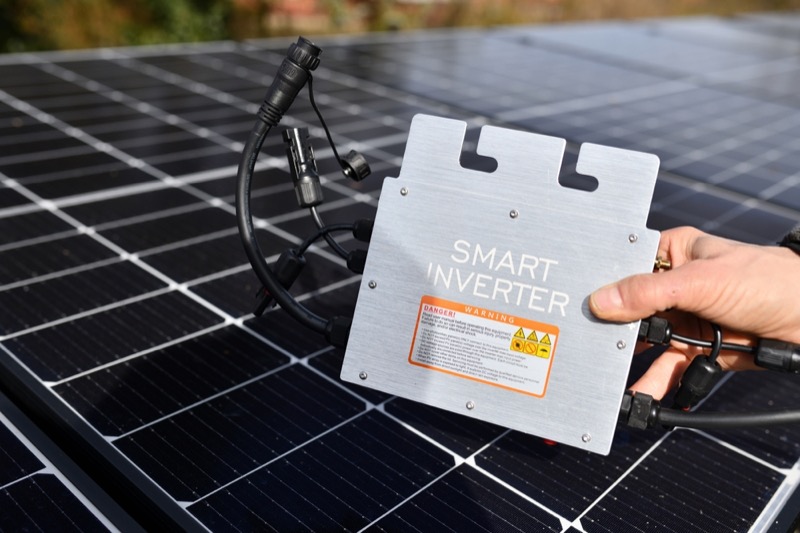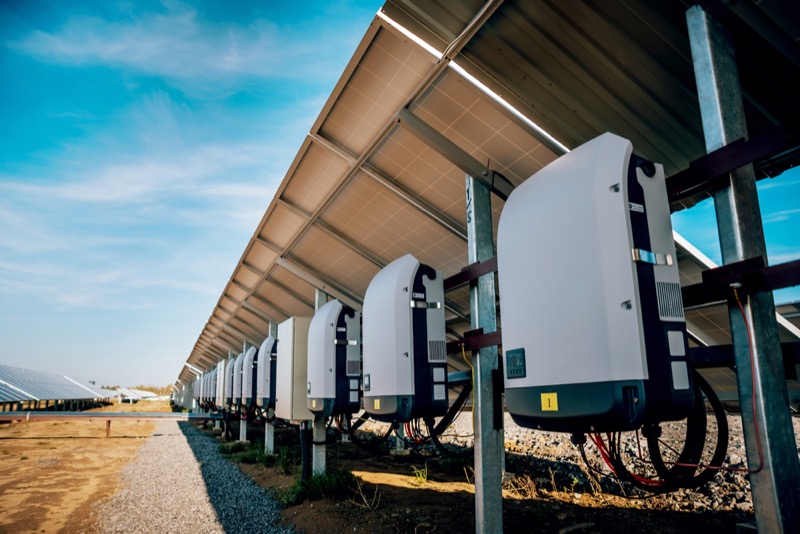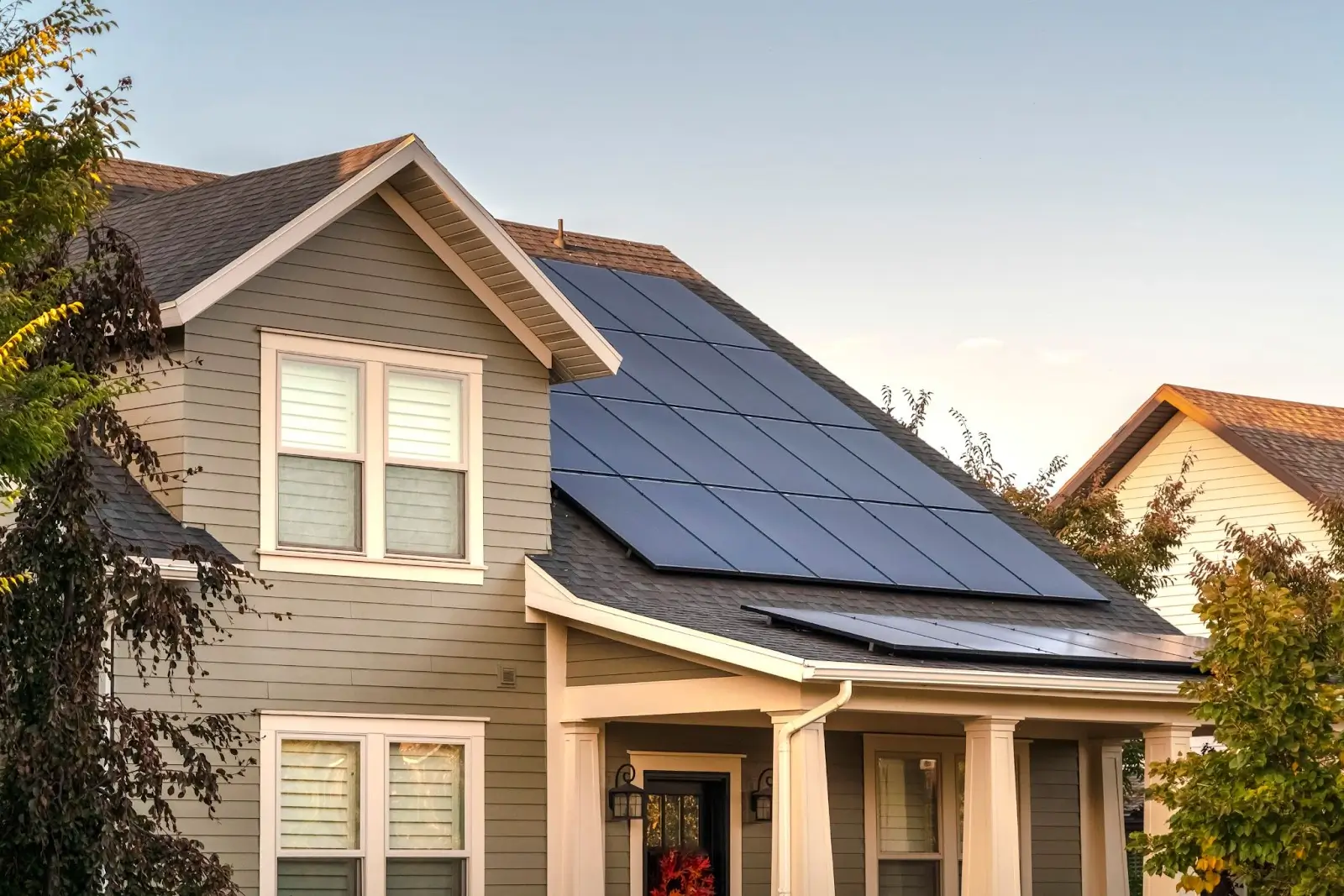
Welcome to our discussion on the pivotal yet frequently disregarded element of solar power systems, the solar inverter.
Having a solar setup without understanding the role and functionality of solar inverters might hinder optimizing your power production. This critical device performs numerous essential functions, crucial to realizing the full benefits of your solar panel system.
In this blog post, we delve deeper into what does a solar inverter do, the reason why it’s termed as an ‘inverter’, and the various advantages it brings to your setup. We will also explore the different types of solar inverters available in the market and how they can improve overall energy production.
What is a Solar Inverter?
A solar inverter is essentially a gadget that translates the direct current (DC) created by your solar panels into alternating current (AC), compatible with most of the appliances we commonly use.
The Functioning of a Solar Inverter
Solar inverters work on a straightforward principle: the sun’s energy, captured by solar panels, is transformed from a DC power form into usable AC power, thereby enabling you to power your home appliances with solar energy.
The Reason Behind the Name “Inverter”
The device earns its name from its primary function – inverting the type of power. Solar panels generate DC power, which then needs to be inverted into the AC power form to be readily used by the majority of household devices.
Advantages of a Solar Inverter
Inverter for solar panels provide a number of benefits that range from enhancing your system’s efficiency to effective system monitoring and more:
Optimal Energy Production
Solar inverters ensure the maximum possible energy production from your system. They maintain your solar panels’ operation at their most optimal power point, maximizing your gains from solar energy.
Supervising System Output
The majority of modern-day solar inverters are equipped with system monitoring capabilities. This not only allows you to keep an eye on your solar panels’ performance but also provides insights into your system’s efficiency.
Interaction with Utility Grid
For a grid-connected setup, solar inverters are vital in converting and feeding power back into the grid. This feature directly translates to you earning credits or reduction in your utility bills for the surplus power generated by your system.
Error Detection
Perhaps one of the most critical features of solar inverters is their ability to quickly detect any faults or problems within your solar system, allowing you to diagnose and troubleshoot issues effectively.

Types of Solar Inverters
Solar power inverters come in a variety of types, each with its own unique features and advantages:
String Inverter
A popular pick for residential use due to its cost-effectivity, string inverters connect an array of solar panels in a series or ‘string,’ thus its name.
Microinverter
Microinverters are installed on each individual solar panel, converting the generated DC power into AC right at the source. This setup heightens the efficiency of the system, particularly in shaded conditions.
String Inverter With Optimizers
This type merges the strengths of string inverters and microinverters. Here, power optimizers attached to each panel make the DC power easier to convert by the central inverter. This balanced approach promises a robust and efficient solar system.
String Inverter Pros & Cons
String inverters are relatively simple and cost-effective, which makes them a popular choice among homeowners. Their simple design makes installation and maintenance straightforward. However, the series connection means that the system’s performance often relies on the lowest performing panel.
Microinverter Pros & Cons
Microinverters offer superior system efficiency and mitigates issues of partial shading. Each panel operates independently, resulting in enhanced energy production. The downside lies in their higher upfront costs and potentially complex installation.
String Inverter with Optimizers Pros & Cons
String inverters with power optimizers combine the benefits of traditional string inverters and microinverters. They optimize the power output from each panel, improving overall system efficiency. However, they do come with a higher initial cost compared to standalone string inverters.

How Much Does a Solar Inverter Cost?
The cost of a solar inverter largely depends on the type, size, and features of the inverter. On average, the cost can range from $500 to over $2000.
How Long Does a Solar Inverter Last?
A high-quality solar inverter can last between 10 and 15 years, although this can vary based on the manufacturer and external conditions such as climate.
What to Look for in a Solar Inverter
When choosing the best inverter for solar, you should pay attention to:
Solar Inverter Warranties
Long warranty periods are a good indicator of product quality. Look for manufacturers that offer warranties of at least 10 years.
Solar Inverter Efficiency
Efficiency determines the amount of solar power that gets converted into usable electricity. The most efficient inverters typically have efficiencies of 95-99%.
Solar Inverter Operating Temperatures
Consider the climate where you live and ensure the inverter you chose can operate effectively within those temperature ranges.
What Inverter Is Right for My Home?
Choosing the right inverter provides you with the best possible setup for your home. Construct Sun offers well-informed, customized residential solar panel installations in Reno, Nevada, and Raleigh, North Carolina.
Industry experts at Construct Sun are just a call away to provide specialized assistance, helping you make an informed decision.

Embark on a Solar Journey
Whether you are a seasoned solar energy user or just embarking on your journey, understanding solar inverters can help enhance your home’s solar potential.
The team at Construct Sun offers personalized advice fitted to your home’s specific needs and conditions. With us, you’ll not only have a system installed but gain a comprehensive understanding of how to get the most out of your solar investment.
Embrace solar energy with confidence, knowing that Construct Sun is by your side, providing top-notch solar solutions in Reno, Nevada, and Raleigh, North Carolina.
Solar is more than a power solution; it’s a leap towards a sustainable future!





